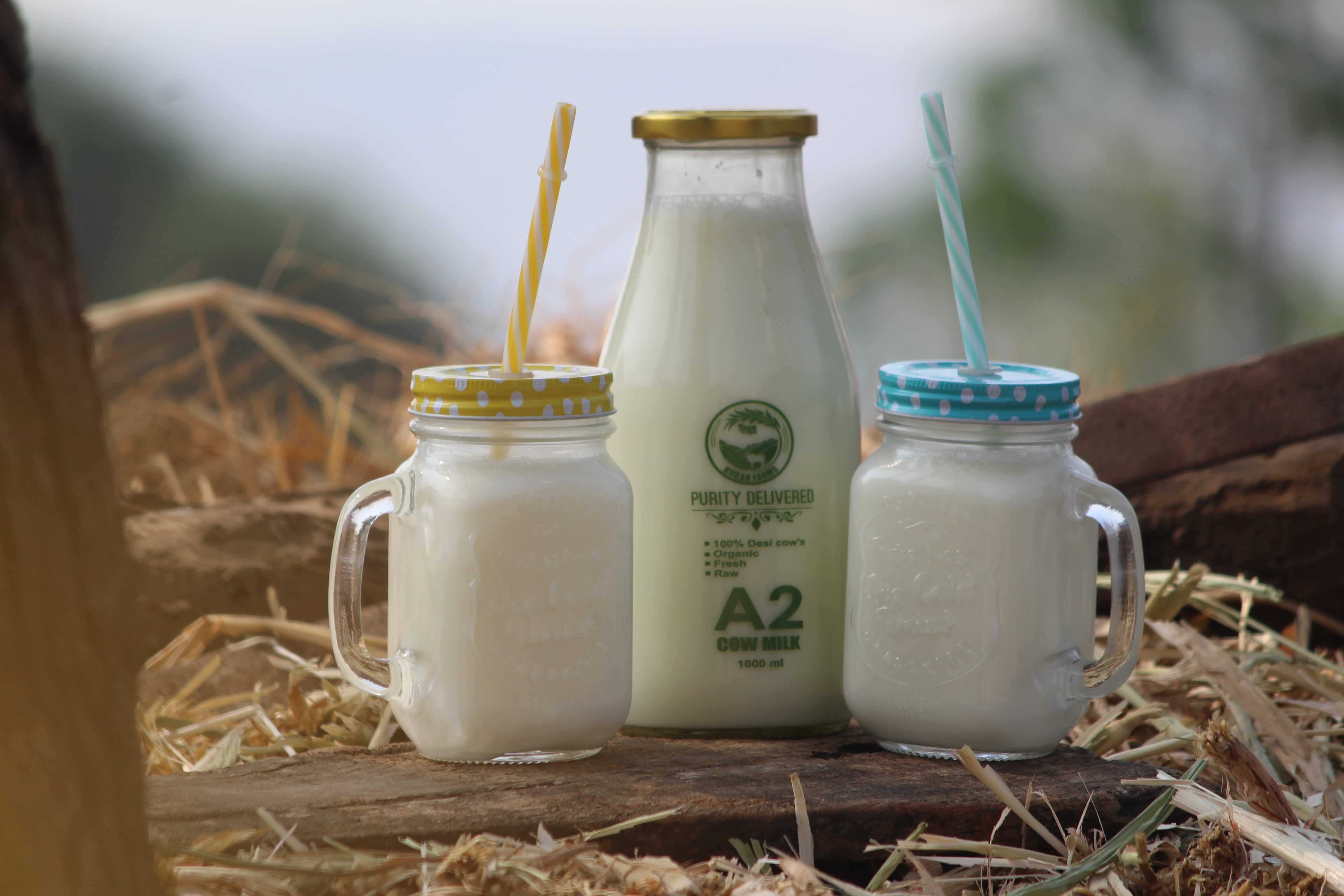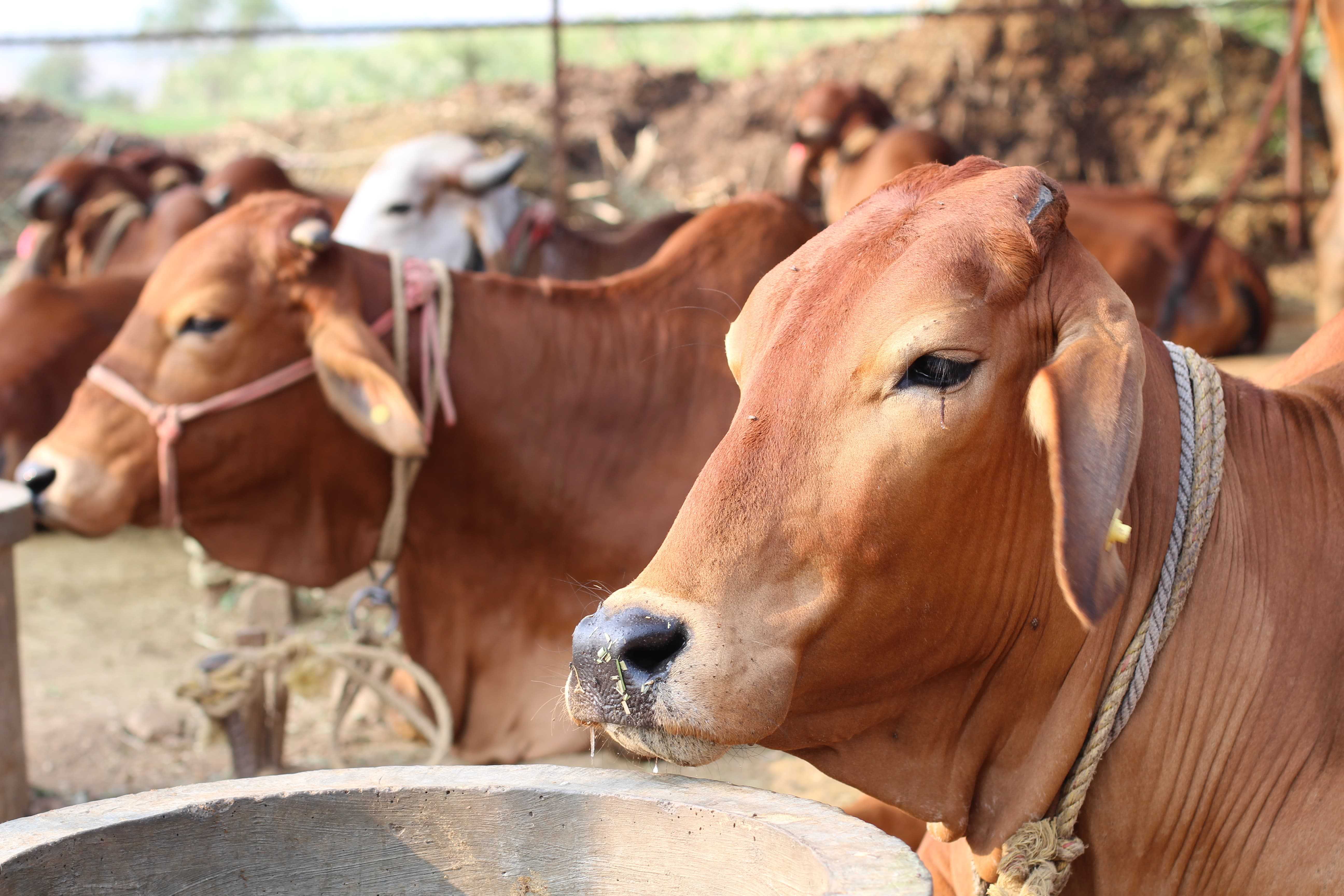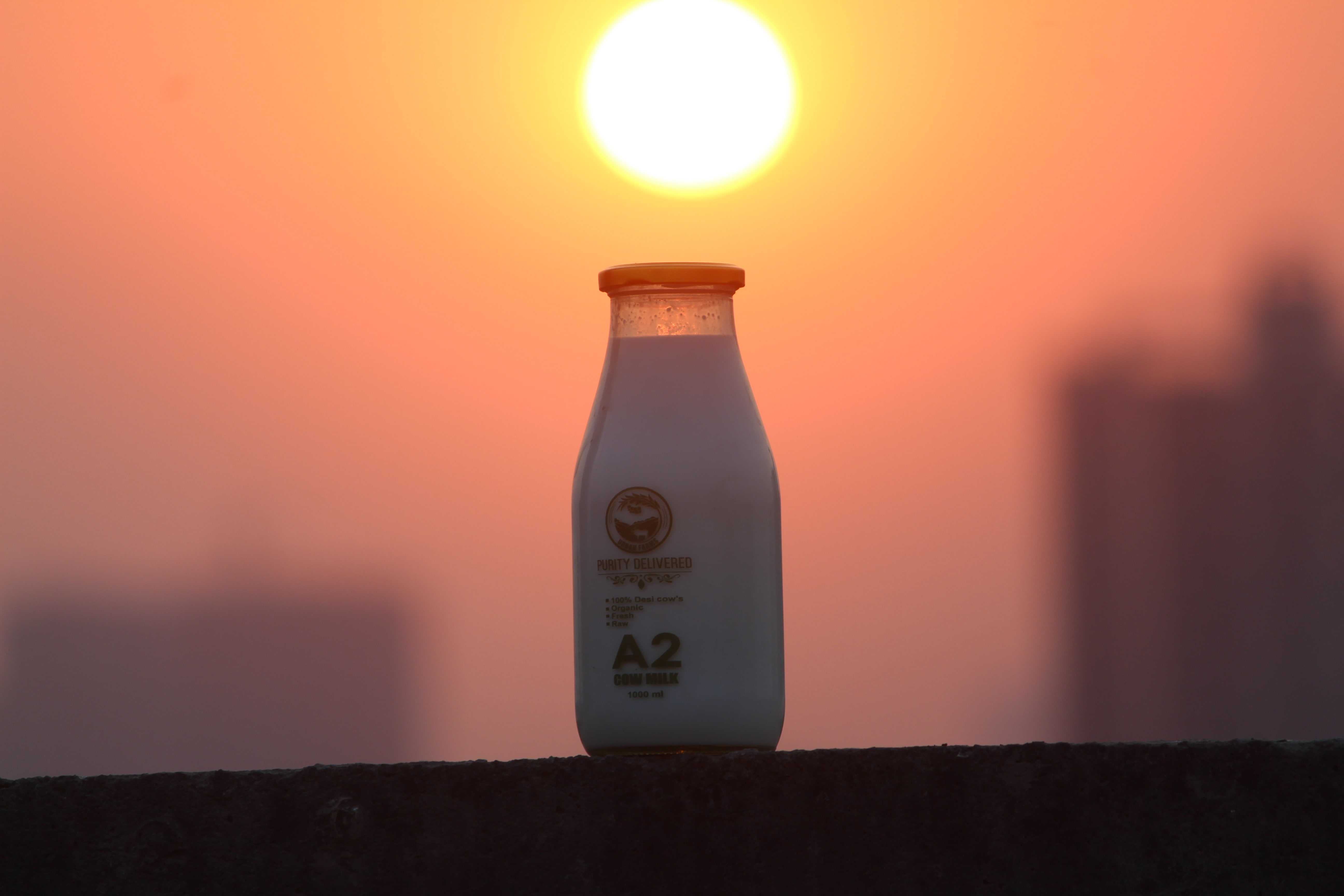Milk is an important food for most people and one of the many food items that had been given much attention is A2 milk. But why are people fanatical about this variety? What exactly do they want from it? Does this kind of milk really help us in maintaining a line? People are often confused by the difference between A1 and A2 milk. You may have heard that they're different in terms of nutritional value, but what does this mean? In reality, there is no real difference in nutrition levels: both types of milk contain the same amount of calories and nutrients. But there are few key differences in both of these milks which we are going to discuss. Some people say they feel bloated after drinking A1 milk because it contains a protein called alpha-lactalbumin which can cause this reaction for those who are sensitive to it. The differences between each type of milk can be seen in their respective fat content and protein levels. A1 milk has a higher fat content than A2 milk which means it also has a higher calorie count. On the other hand, A2 milk contains more protein than its counterpart; this makes it better for people who want to increase their daily intake of dairy products without taking in too many calories. The article will make you understand clearly what makes the difference between these two types of milk, and then you decide if it is worth trying or not. This article will also discuss the importance of this distinction and how it could affect your health if you consume either type of milk.
Some of the key differences between A1 and A2 milk -
1. Fat content is lower in A2 milk -
A2 milk contains around less fat content compared to conventional milk for A1 and A2 bovine milk. A1 milk has more fat compared to A2. Non-A2 milk is more likely to go rancid due to the higher fat content hence many manufacturers do not use it for long term storage as compared to A2 milk which has a longer shelf life (pantry).
A1 and A2 beta-casein proteins differ by one amino acid, which makes the two proteins have different biochemical properties. One of these differences is seen in the fat content of milk from cows that produce A1 vs. A2 beta-casein. Milk from cows producing A2 beta-casein contains less saturated fats than milk from cows producing only A1 beta-casein. Because of this difference, when compared to regular milk products made with the more common type of beta-casein (A1), many people choose to consume dairy foods that contain dairy products made with the other type of beta-casein (A2).
2. A2 milk is easier to digest -
The A1 protein in conventional milk can cause dairy intolerance by triggering an immune response. A2 milk is homogenised at a lower temperature which prevents the proteins from separating and results in fewer digestive problems. It has been shown to be easier on the stomach and more readily digested than A1 milk. This makes it better suited for those who suffer from lactose intolerance, gastrointestinal tract discomfort or conditions related to FODMAPs such as irritable bowel syndrome (IBS)
4. Contains higher levels of nutrients -
The overall nutritional quality, including nutrition content and bio-availability, is better in A2 milk due to greater amounts of good fats, proteins and antioxidants. Compared to standard (A1) cow's milk, A2 milk has higher levels of four key nutrients - calcium, magnesium, phosphorus and Vitamin D. This is because it comes from cows with the A2 gene; which helps produce more of these beneficial nutrients. Research has shown that a protein in A1 milk can be harmful to human health. This is not the case with A2 milk as it contains only the 'good' proteins (A2 beta-casein).
5. A2 milk for children-
It is seen that giving A2 milk to children may help prevent diabetes, according to researchers in the UK. This is because the protein has a lower proportion of an amino acid called BCM7 which boosts insulin resistance than regular cow's milk. The study involved more than 1,000 children aged 6-8 and found those who drank the most A2 had 29 per cent less chance of developing metabolic syndrome (MS) during childhood.
6. A2 is healthier than A1 milk -
The A2 beta casein protein is one of two main variants of the beta casein protein found in milk. It is similar to other types of beta casein which are present in cow's milk cheeses, but differs by only one amino acid. This difference has a significant effect on people who have been diagnosed with type 1 diabetes or who are at risk of developing the disease. The A1 beta casein variant may trigger an autoimmune reaction that destroys the insulin-producing beta cells in their pancreas. In contrast,
A2 milk does not cause these reactions and there is some evidence it might even protect against them. Now researchers say they have identified why this might be so: in mice at least, A2 milk. This is why A2 is more effective than A1 at suppressing inflammatory responses.
7. Better for Lactose Intolerance & Asthma -
The protein in cow's milk belongs to a family called casein that is said to trigger allergic reactions, asthma and lactose intolerance amongst others. The A1 protein is said to be responsible for the adverse effects. When digested, it breaks down into alpha-casomorphin 7 (BCM7), a chemical compound in the same family as morphine.
A2 milk contains only A2 casein instead, and not the toxic A1 component found in conventional cow's milk which makes it suitable for many who are lactose intolerant. The body processes A1 and A2 proteins differently: whereas most people cannot digest the "A1" beta-casein protein that naturally occurs in cows' milk, our bodies can easily digest the A2 variety.
8. It supports better growth of brain cells -
It contains lesser plasma proteins that bind to active growth factors in colostrum and the benefits are passed on in A2 milk A new study has shown that bovine milk enriched with specific proteins and fats stimulate faster growth of neurons (brain cells) than regular cow's milk.The results also show that A1 beta-casein, which is found primarily in conventional cows, inhibits brain cell growth. This is important because the human brain grows at its most rapid rate during the first two years after birth as it triples in mass so to provide optimal nutrition for brain development it's crucial to have a good quality 'fuel' from A2 milk.
9. Pasteurized and Homogenized at a higher temperature than A1 milk -
Pasteurized A1 milk has been separated into "slammed" (standardized) components of fat, protein and lactose. Pasteurization is a heat treatment process performed to reduce the number of bacteria in food products so as to increase their shelf life. During pasteurization, milk is heated until all organisms are destroyed.
The World Health Organisation recommends that foods intended for infants be prepared in ways to destroy any harmful organisms, so that it can be beneficial for every human. Pasteurization is a method of heating milk gently to temperatures ranging from 65°C to 70°C. In this process, other enzymes and nutrients are destroyed besides bacteria. However the heat treatment does not destroy beta-casein proteins (A1 or A2).
Homogenization involves forcing milk under pressure through tiny holes, about 1mm in size. This breaks up fat globules as well as any protein particles present in the milk dissolved within them, such as whey proteins such as beta-lactoglobulin and caseins like beta-casein.
10. Molecular structure of A1 and A2 Milk-
The uptake of beta-casomorphin is very different between the two types of milk in A1 and A2 milk. A1 and A2 milk differ in their molecular structure, which impacts the way it is digested. While both types of milk contain beta-casomorphin, only A1 milk has beta-casomorphin – a processed form of casomorphin that signals to the brain more effectively than unprocessed casomorphin.
Consequently consumption of A2 milk does not lead to the same increase in beta-endorphins as compared with A1 milk. This demonstrates a physiological difference between these two types of milks. The net effect is that it takes less A2 than A1 beta-casomorphin to trigger this system in the brain's reward centre.
Urban farms is offering fresh A2 milk in Pune. Our A2 milk in Pune is produced by least human contact and all the covid protocols by the government are followed so that we are able to deliver healthy and nutritious A2 milk to our customers. It is delivered directly from the farm to your doorstep. To place your order you can contact us or call on this number +91 9011688811. Our team will get in touch with you for your requirement for A2 Milk Pune!











Leave A Comment